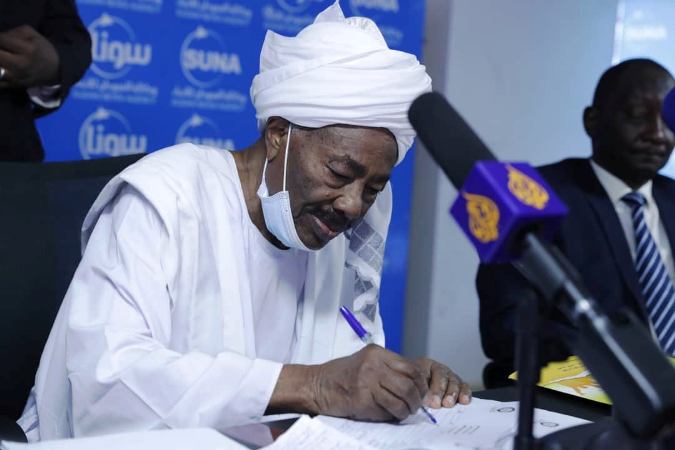Sudan’s NUP, SRF groups distance themselves from new controversial initiative
April 19, 2022 (KHARTOUM) – The signing of a new political platform for the transitional period in Sudan has caused confusion and chaos within the National Umma Party (NUP), while other political forces have been quick to distance themselves from this initiatives.
The UNITAMS and the African Union prepare together with the IGAD to launch an intra-Sudanese dialogue aiming to bring the country out of the political strife and restore a civilian transitional government.
Several political parties and coalitions launched initiatives with the hope to gather other forces around them and enable them eventually to take part in the transition.
In this context, heads and representatives of 79 political and armed groups, some of whom were part of the former regime such as the Islamist Popular Congress Party, signed a political programme for the transition in Sudan.
NUP acting leader Fadlallah Burma unexpectedly was among those who signed the document.
His participation triggered an uproar within the party, which immediately issued a statement rejecting the deal and pointing to the party’s roadmap and commitment to the Forces for Freedom and Change (FFC).
In the same vein, Handi Idris leader of the Sudanese Revolutionary Forces (SRF) and Sudan Liberation Movement-Transitional Council issued a joint statement with Tahir Hajar denying the signing of this controversial document.
The Umma Party of Mubarak al-Fadil al-Mahdi also issued a statement saying they are not part of the political deal.
For his part, Burma Nassir, for his part, denied involving his party in this political charter.
He stressed that his participation came to support the unification of political initiatives to solve the country’s deepening crisis, and to encourage Sudanese solutions.
He added that the document does not express the position of the National Umma Party, pointing to the roadmap his party proposed to end the coup and restore a civil democratic transformation.
The initiative proposes the formation of a lean cabinet representing the different states, the extension of the transitional period until May 2024, and the partnership with the military component until the end of the transition.
According to Rabah Sadiq al-Mahdi a member of the party leadership, the source of the controversy are people who initiated this platform such as Mahmoud Zain al-Abidin a member of the National Congress Party (NCP) and one of its militants who fought the SPLM/A under the banner of jihad.
“This initiative, also, aims to reproduce partnership with the military component, which is no longer acceptable. In addition, it attaches great importance to the selection of the transitional government and the prime minister, a matter that differs from the vision of the National Umma Party and its allies,” she further wrote.
(ST)

